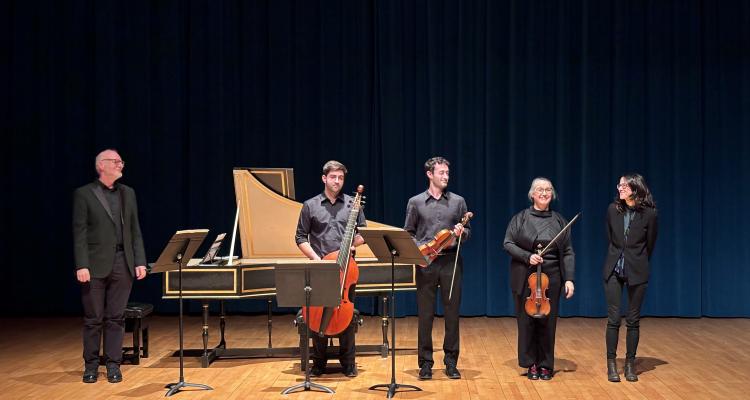Girton's Official Fellow in Music Composition, Dr Marta Gentilucci, took part in the Cambridge Festival 2024 as Artistic Director of the inaugural Electro//acoustic day, which created a space where the audience experienced classical and contemporary experimental music together.
Dr Marta Gentilucci is a trained opera singer, but after her studies in Italy, she discovered her passion for composition which seamlessly merged with her love for literature and poetry. Composition quickly became her primary focus, captivating all of her attention. In recent years, she has come to realise that her vocal training has profoundly influenced her development as a composer. She has always perceived music and sound as a physical experience rather than merely an intellectual one. This perception stems from her background as a singer, in which she has come to feel sound as breath and resonances as inherent parts of the sonic experience. For Marta, there has been always an attraction to the inner structure of sound, its way of resonating in space and oscillating within a timespan, its metamorphosis in colour.
Technology and electronic music gave Marta the opportunity to delve deeper into the nature of sound, analyse it, decompose and recompose it in new ways, thereby building spaces of resonance within a concert hall, and within the musicians’ space in an ensemble, within the instrument and the scores.
Three of her most recent projects have involved voice and electronics or voice and space. One is Canzoniere I, which premiered at Ircam MANIFESTE festival in Paris and then ECLAT Festival in Germany. Another project is moving still - processional crossings, commissioned by the Biennale of Venice. The last one is cartographies du corps, a sound-visual installation realised in collaboration with the photographer Susan Meiselas, produced by Les rencontre de la photographies de Arles and Villa Medicis in Rome (where Marta was resident in 2022-23).

